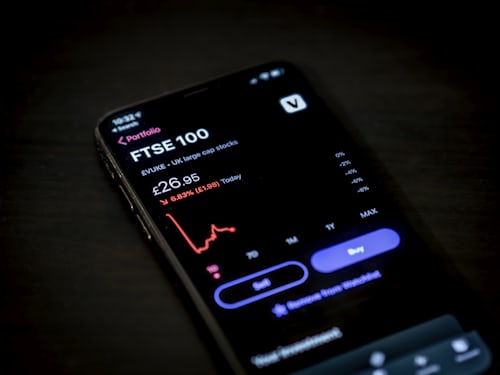- Official Alumni Network |
- Mandatory Disclosures |
-
Online Grievance Redressal/Feedback
|
Online Grievance Redressal/Feedback
Online students/Faculties can connect to redressal officer via mail and phone.
The grievance will be addressed within 24 hrs and incase it is not done, the grievance can be escalated to the Director.
Students and Faculties can give feedback online via mail mentioned here.
Redressal Officer
Ph. No. : 9422775388
Email ID: webmailibmr@gmail.com
- Extension of Approval (EOA) |
- Letter of Approval (LOA)

10 Reasons Why ASM’s PGDM Is The Perfect Choice For Aspiring Business Professionals?
May 5, 2022
Reasons Why ASM’s PGDM Is The Perfect Choice For Aspiring Business Professionals?
May 13, 2022What are open-ended investment funds?
In the case of open-ended investment funds, often referred to in colloquial language as funds, a company (a fund management company or investment company) collects the investors' money and invests it in one or more areas.
The fund company, whose English name is "asset management company", issues share certificates from the pooling of investments, which can usually be traded on the relevant securities markets on each trading day.
Definition of fund: According to the Duden dictionary of origins, the French words fond and fonds paraphrase the German words "ground or basis". A fond is the back seat of a car, a fund is also the base for a sauce or soup, but in the financial world it is primarily a reserve of money or assets. Fond and fund go back to the Latin term fundus.
Observe specifications
After the fund company has been provided with the designated capital for the fund, it invests it according to previously precisely defined principles, e.g. in shares, fixed-interest securities, on the money market and/or in real estate.
As a rule, open-ended investment funds observe the basic rule of risk diversification when investing money. In practice, this means that not all of the fund's assets may be invested in just one security or just one property. By spreading the assets over various investment objects (diversification), the risk of the investment is kept as low as possible.
Fund investor relieved
With the purchase of fund units, the investor acquires co-ownership of the fund assets. He thus participates in the development of all the assets in the fund. Investors who do not have special knowledge or connections or who do not have the desire or sufficient time to make individual investments (shares, bonds, etc.) can benefit from this in particular.
Redemption guaranteed
In an open-ended fund, the amount of capital is not fixed in advance. Because of daily purchases and sales, it fluctuates constantly. Investors can buy or sell new fund units at any time.
In Europe, every fund company is obliged to redeem the shares at the valid daily price. The respective prices in exness personal area are set daily on the stock exchanges and published in the well-known media. A distinction must be made between the redemption price and the issue price.
Advantage for the investor - special assets
From a legal point of view, the capital of an open-ended fund represents a special fund that is merely managed by an investment company. The fund units are held by a custodian bank. The fund company charges a management fee for managing the fund, which is usually 0.5-2%. In addition, other costs, such as transaction costs, etc., are sometimes incurred, which reduce the fund's return.
Most important argument for fund investment
The biggest advantage of investing in open-ended investment funds is the fact that it enables investors to gain broadly diversified exposure to the securities markets, even with relatively small amounts.






